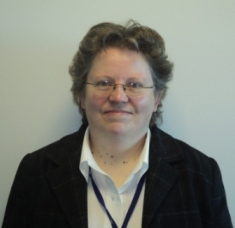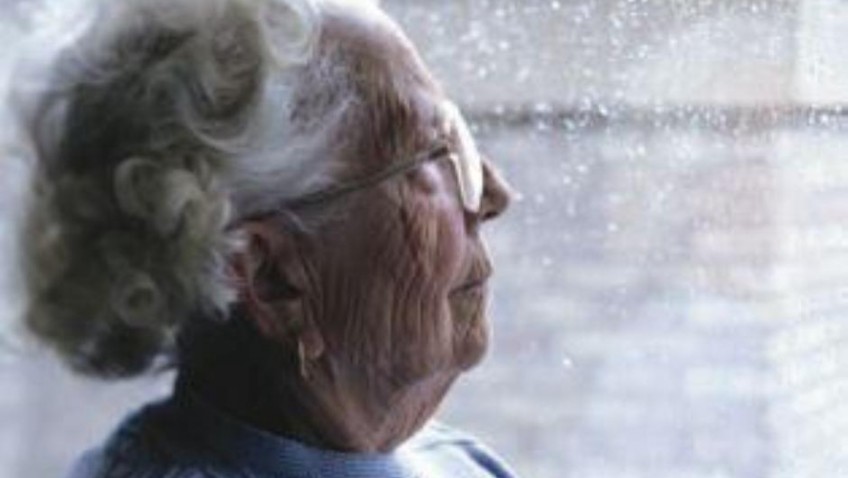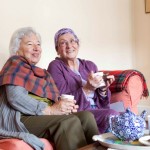Moving public services online without providing sufficient support for those who are ‘offline’ is making it harder for some pensioners to access vital services and could deter people from seeking the support they need, warns a new report published today by the Charity Age UK.
New figures for the Charity, published in its report ‘Later life in a digital world’, show a clear link between internet use, socio-economic group and age, providing evidence that it is the poorest older people who are most likely to be offline.
Around four out of five people aged 75 and over in the lowest socio-economic groups do not currently use the internet compared to two out of five in the highest group. And although increasing numbers of older people are getting online, there remains a stark difference in internet use between the youngest and oldest age groups.
Virtually all (99 per cent) of young adults have recently used the internet, but this falls to 71 per cent of those aged 65 to 74 and just 33 per cent of those aged 75 and over.
Many of the poorest older people are already reluctant to claim much of the support they are entitled to, every year missing out on £3.7 billion of pension credit and housing benefit alone, either because they don’t realise they’re entitled, feel too proud or embarrassed to claim, or because they believe the claiming process is too complicated and they don’t like asking for help.
The telephone remains the main way to claim pension credit but in many areas people are encouraged to claim housing benefit online. The report warns that increasing pressure to claim online is likely to be an additional barrier to obtaining support unless suitable and easily accessible alternative ways to claim are always available.
Central government services are increasingly designed to be digital by default. Despite the Government’s pledge to ensure ‘assisted digital’ support for those who are not online[v], the report highlights how people who do not use the internet can still often be at a disadvantage.
For example the new HMRC Marriage Allowance – which lets people who are married or in civil partnerships transfer unused personal tax allowance to their partner – was launched in April 2015 originally as an exclusively online service. A telephone option is now available but has been given little publicity. This is all the more surprising, given that over a third of couples who are expected to benefit from the allowance are pensioners.
To understand more about the digital divide in later life, Age UK commissioned qualitative research with older people who do not use the internet and sought feedback from older users and non-users of the internet. The majority of the internet users feel that the internet is hugely positive, making life easier, more convenient and cheaper, whilst also helping them to keep in touch with friends and family, and feel better informed.
However the Charity’s research with non-internet users revealed deeply entrenched barriers to using the internet. Many simply feel that the internet is ‘not for them’ and any benefits are outweighed by major barriers to being online – most do not believe that there is anything lacking in their lives because they are not online and raised issues such as a lack of digital skills and security, with many concerned that the internet is an ‘unsafe’ place.
The so-called advantages to being online are not necessarily seen in the same way by non-users. For example, while internet users generally feel that being online is more convenient and saves time, those older people who are not online typically prefer to do their shopping or other chores in person as they feel it offers the benefits of getting out of the house and meeting people face-to-face. Given the epidemic of loneliness among older people in this country, perhaps this is not so surprising.
Even among those who have no interest in the internet, some participants reported feeling frustrated that at times it is becoming difficult to live in an increasingly digital world. Some have accessed the internet via friends and family out of necessity but while this help is generally appreciated, some reported feeling inadequate and embarrassed at having to ask for help to complete a simple task. Age UK is calling on organisations that provide online services to recognise that it is not always possible or appropriate to suggest people get help from others.
 Caroline Abrahams, Charity Director at Age UK, said: “Digital technology is transforming our lives and for growing numbers of older people it’s a boon. We are worried that while many of those older people who are offline don’t see this as a problem, they are at risk of becoming seriously disadvantaged.
Caroline Abrahams, Charity Director at Age UK, said: “Digital technology is transforming our lives and for growing numbers of older people it’s a boon. We are worried that while many of those older people who are offline don’t see this as a problem, they are at risk of becoming seriously disadvantaged.
“We want to increase the numbers of older people benefiting from digital technology, while ensuring that those who are not online do not miss out on, or find it harder to access, essential goods and services. It’s bad enough that it is so hard to compare utility providers if you aren’t online, but it would be even worse if similar barriers arose for older people in terms of obtaining State benefits and other support.
“Amidst the Government drive towards ‘digital by default’, the needs of older people who are not online and who probably never will be must be taken fully into account.”
“In order to ensure that those who do not use the internet are not disadvantaged by digital transformation in the public and private sectors, we need three complementary approaches: greater support from Government and the industry to increase digital inclusion, great user-friendly technology and design, and appropriate alternative access for people who are not online.”
Age UK delivers a number of UK-wide digital inclusion programmes and campaigns working with many local and national partners. The Charity supports those in later life who want to go online to benefit from internet access and technologies at all stages of engagement through taster sessions, on-going courses and outreach programmes.
For more information or one of its free guides to help people stay safe online and make the most of the internet, people can call Age UK Advice free of charge on 0800 169 65 65 or if they have internet access they can visit www.ageuk.org.uk/work-and-learning/technology-and-internet/.




